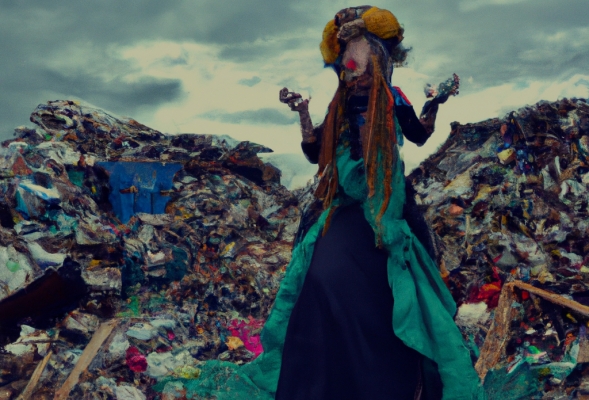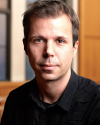UW composers Jeff Bowen, Arshia Ashari, Melissa Wang, Huck Hodge, Joe Krycia, and Sandesh Nagaraj explore unconventional sonic landscapes in this concert presented by the UW Composition program.
Program
Jeff Bowen
Ignition/Convection for computer-realized sound
Arshia Ashari
Within This Sleepless Bed of Secrecy
Dalma Ashby, solo violin
Melissa Wang
Maybe a phone call or two, or three, or five, or six, or thirty
Kimani Bishop, tenor steel pan; Jai Lasker, electric guitar; Logan Bellenkes, electric bass; Rose Martin, voice & 2 non-resonant objects; Galin Hebert, drum set; Melissa Wang, tape & electronics
—Intermission—
Joe Krycia
Cello Sonata, 2020-?
Peter Tracy, cello
Sandesh Nagaraj
Against the black tide of mud
Sandesh Nagaraj, Musical spoons and voice
Huck Hodge
re[(f)uƨɘ]
mi
x
Huck Hodge, melodica, styrofoam, electronics
Program Notes
Ignition/Convection
This study derives its sound material exclusively from a recording of a single match being struck against a matchbox and bursting into flame. In addition to serving as the sole sound source in the work, the striking of a match guides the formal design of the piece as well as a gestural image. The first third of the piece—the ‘ignition’—consists of several varieties of noise-based textures confronting one another and developing into a sound mass which eventually peaks and dissipates. In the remainder of the work, new periodic and harmonic structures are progressively revealed, as flames are drawn out after a moment of ignition through the dynamic effects of convection currents in the air.
I, within this sleepless bed of secrecy,
seek once more the dreamlike figures of your visage
–Ahmad Shamlou, Nocturne (1954)
Maybe a phone call or two, or three, or five, or six, or thirty is about obsession. For example: obnoxious and consecutive phone calls late at night, and blocking the number will not be helpful because they will find another way to contact you. Reality is skewed when people become obsessed with something or someone.
The piece is bitonal, featuring tenor steelpan, electric guitar, electric bass, drum set, voice, two percussive sounds, and pre-recorded tapes. The first and fourth movements are read with sheet music, the second movement through a graphic score, and the third movement through written instructions. The hymn in the piece is “How Long” by Peter Wang.
Against the black tide of mud
An improvisation using wooden spoons that employs a single rhythmic structure that I composed using Carnatic rhythm syllables. The sound of the wooden spoons are transformed using an octave pedal and a short delay.
re[(f)uƨɘ]
mi
x
refuse (n.)
refuse (v.)
reuse (v.)
ruse (n.)
fuse (n.)
re-fuse (v.)
Hidden in this word are a number of conceits, each of which informs the piece in its own way. Among them, my abiding interest in uncovering beauty in nominally ugly junk and the delight I take in auditory illusions. Through slight shifts in the voicing and registration of a harmonic collection, a protean shift results: noise becomes dissonant harmony, dissonant harmonies fuse into complex timbres, timbres melt into single pitches. re[(f)use] was commissioned by Music at the Anthology for the JACK Quartet (the original version consisting of parts for melodica, string quartet, and electronics). This performance is of a revised version for solo melodica and electronics that was premiered earlier this fall at CNMAT in Berkeley, CA.
Director Bio
Huck Hodge is professor and chair of the composition program in the school of music. A composer of “harmonically fresh work", "full of both sparkle and thunder” (New York Times), his music has been praised for its “immediate impact” (Chicago Tribune), its "clever, attractive, streamlined" qualities (NRC Handelsblad, Amsterdam), and its ability to "conjure up worlds of musical magic” with “power and charisma" (Gramophone Magazine, London). There is a dramatic interplay of color, light, and darkness in his music, which emerges from an uncanny blending of pure and dissonant harmonies, widely spaced orchestrations and vast, diffuse timbres.
Hodge is the recipient of many prestigious awards and distinctions. Among these is the Charles Ives Living, the largest music award conferred by the American Academy of Arts and Letters. His other major awards include the Rome Prize (Luciano Berio Fellowship), the Gaudeamus Prize, a Guggenheim Fellowship, commissions from the Koussevitzky Foundation in the Library of Congress, the Fromm Foundation at Harvard University, the American Composers Forum (JFund), the Barlow Endowment, Music at the Anthology (MATA), the American Academy in Rome, Muziek Centrum Nederland, Musik der Jahrhunderte, and the National Theater and Concert Hall of Taiwan, in addition to multiple grants and awards from ASCAP, the Bogliasco Foundation, Copland House, the Deutscher Akademischer Austauschdienst (DAAD), MacDowell, New Music USA, the Siemens Musikstiftung, and Yaddo.
His music has been performed at Carnegie Hall, Lincoln Center and at numerous major festivals — the New York Philharmonic Biennial, Berliner Festspiele, Gaudeamus Muziekweek, Shanghai New Music Week (上海当代音乐周), ISCM World Music Days, and many others in over twenty countries on six continents. Other performances include those by members of the Berlin Philharmonic and Ensemble Modern, the ASKO / Schönberg Ensemble, the Seattle Symphony, and the Orchestra of the League of Composers. His chamber music has been premiered, performed and recorded by a long list of soloists and ensembles such as the Daedalus, JACK, Mivos, and Pacifica string quartets, the Adapter, Aleph, Argento, Dal Niente, Divertimento, Insomnio, SurPlus, and Talea ensembles, and his colleagues David Gordon, Donna Shin, Cristina Valdés, Cuong Vu, and Bonnie Whiting. His published music is distributed by Alexander Street Press (US) and Babel Scores (France). Recordings of his music appear on the New World and Albany record labels and have been featured in numerous national and international broadcasts.
Before joining the University of Washington, Hodge taught composition at Columbia University, where he earned his M.A. and D.M.A. studying with Fred Lerdahl, George Lewis, and Tristan Murail. Prior to this, he studied composition, theory, and new media at the Staatliche Hochschule für Musik und Darstellende Kunst in Stuttgart, Germany, with Marco Stroppa and Georg Wötzer as well as music, German literature and philosophy at the University of Oregon and the Universität Stuttgart. He has been a visiting professor/invited lecturer on music and aesthetics at a variety of institutions including the University of Chicago, CNMAT/UC Berkeley, UCSD, Columbia University, Eastman School of Music, Manhattan School of Music, NYU, and the Universität der Künste in Berlin, and he served for three years as the director of the Merriman Family Young Composers Workshop at the Seattle Symphony.

